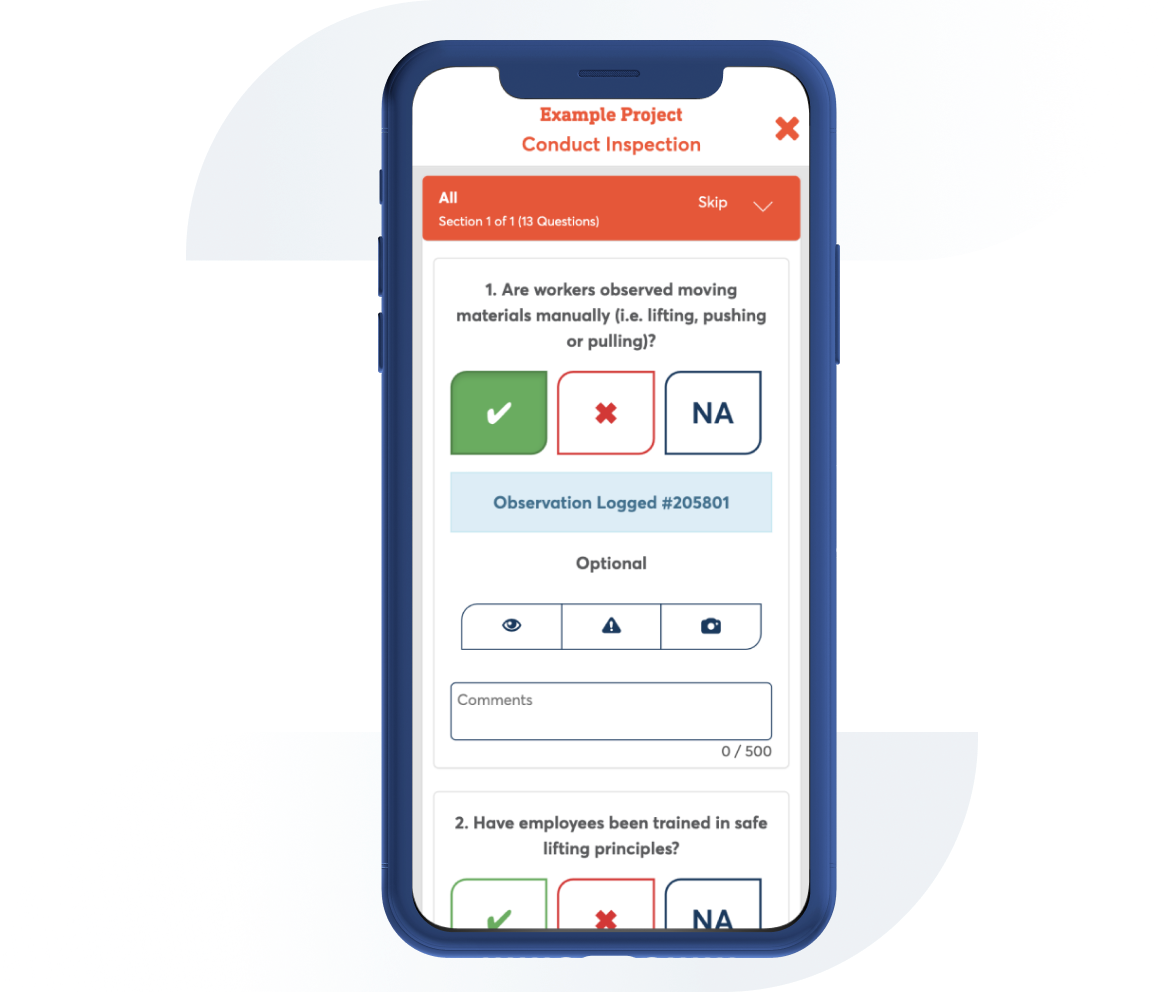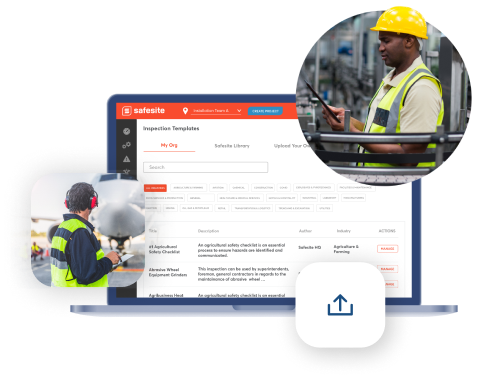Jobsite Hazard Identification Checklist
Contributor: Safesite Jurisdiction: OSHA
OSHA checklist keeps site safe by properly inspecting equipment, surrounding work area for damage, defects or hazards and ensuring employees use best practices in equipment operation/job site safety.

Template Preview
1. Is a properly sized, inspected and stocked First Aid Kit available on the job site?
Actions
2. Is Fall Protection selected based on a hazard analysis of the planned work, known hazards and specific work location?
Actions
3. Are all portable cord and plug-type electrical tools powered from an GFCI equipped receptacle or used with a portable GFCI?
Actions
4. Are flexible cords used on the job site of the properly rated and listed to support the load required?
Actions
5. Is the site cleaned-up at regular intervals and at end of shift?
Actions
6. Are aerial lifts inspected prior to use and maintained in accordance with the manufacturer's recommendations for safe use of the equipment?
Actions
7. Is fall protection equipment stored and maintained in accordance with the requirements outlined in the Fall Protection Program?
Actions
8. Are ladders maintained in good usable condition at all times?
Actions
9. Are walkways kept clear of cords, hoses or materials that could trip personnel?
Actions
10. Are employees using the ladders maintaining 3-points of contact/control while climbing the ladder?
Actions
11. Are warning signs, flags, traffic control devices, and/or barriers and flaggers in place when working near vehicular traffic?
Actions
12. Do all unattended loaders and industrial trucks have the bucket or boxes lowered to the ground unless precautions such as blocking are taken to prevent accidental lowering; controls are in neutral and brake is set.
Actions
13. If required, is the scaffold system secured/tied to the wall or structure at the proper intervals? (30' horizontal/24' vertical)
Actions
14. Are scaffolds used at the work site inspected and tagged after erection and at least every 7 days thereafter by a competent person?
Actions
15. Has each employee who works on a scaffold been trained by a competent person on hazards and procedures used to control hazards?
Actions
16. Are portable fire extinguishers fully charged, inspected monthly and serviced annually?
Actions
17. Are skylights and roof opening covers guarded and constructed to hold at least 200 pounds?
Actions
18. Are floor and wall openings guarded by a cover, guardrail or equivalent (except at entrance to stairways and ladders)?
Actions
19. For multi-story work sites - is water available on every floor, and located as close as practicable to areas where employees are working?
Actions
20. Are only authorized and trained personnel permitted to use welding, cutting or brazing equipment?
Actions
21. Are cylinders located or stored in areas where they will not be damaged by passing or falling objects or subjects to tampering by unauthorized persons?
Actions
22. Is at least a 10-foot safe working clearance from overhead power lines maintained by workers or cranes?
Actions
23. If using cranes, are precautions in place to not fly loads over workers or occupied structures?
Actions
24. Are employees provided and trained to use appropriate personal protective equipment (I.e. glove types, safety glasses, hard hats, hearing protection etc.) necessary for working safely?
Actions
25. Write Comments or Remarks here:

Can't find what you are looking for?
